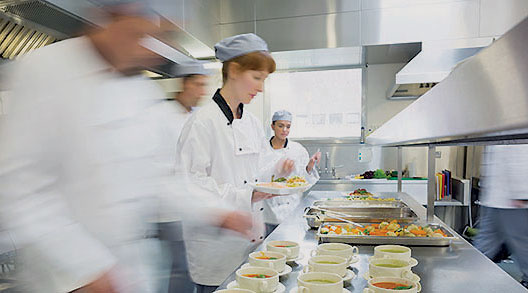

MUSCAT, OCT 8 - The GCC food services sector is headed for further growth with key indicators such as a growing population and tourism sector, disposable income, and changing dietary habits continuing to shore up demand for food and dining options despite sluggish economic conditions.
According to a report by Al Masah Capital Limited, the GCC food service market is now firmly placed on a growth trajectory with its value expected to grow at a compound annual growth rate (CAGR) of eight per cent and is tipped to hit the $29.3 billion mark by 2020, up from $21.5 billion registered in 2016 and $20.1 billion in 2015.
This growth, the report indicates, will largely be driven by a ballooning middle-class and increased penetration by international and local retail outlets across the GCC region.
Moreover, with the region’s overall food consumption expected to have reached 48.1 million metric tonnes in 2016, up from 45.8 million metric tonnes in 2014 fuelled by an expanding consumer base, the GCC is now on course towards building a strong brand identity in the food services space and is likely to continue strengthening its foothold in coming years.
The GCC market is expected to grow substantially year-on-year mainly due to the rapid expansion by homegrown brands that, among other things, are also eyeing the 25 million tourists expected to flock the much-awaited Dubai Expo 2020.
This growth will also be supported by the regional private equity players who, despite economic slowdown, have clearly preferred to rebalance their portfolios by increasing their investment focus in the food services sector amid rising volatility and decline in oil prices since 2014.
The report further indicates that the fast food segment grew by 7.4 per cent and is further expected to continue its dominance in the market followed by the full service restaurant segment, which grew by six per cent CAGR.
Cafes and bakery segments, whose sales remained relatively subdued, with a CAGR of 7.5 per cent between 2012 and 2016, are also expected to grow at around three per cent CAGR to reach $2.75 billion by 2020.
Key growth drivers
A resilient economy weakened by a drop in oil prices and later supported and revived by a diversification strategy has also been largely responsible for growth within the food services sector.
GCC’s GDP growth, which is estimated to reach $1.9 trillion by 2021, from $1.35 trillion in 2016, has led to higher personal income levels thus supporting the market for food service providers in the region.
And with the UAE and Saudi governments heavily investing in the hotel and retail spaces, such strategic developments will in turn make GCC a promising hub for investors and hospitality brands, and will ultimately have a positive effect on the food services sector as a whole.
According to the report, trends that are likely to accelerate the food service sector growth include a rise in demand for healthy and organic food. This is mainly due to a rising incidence of lifestyle related diseases such as diabetes and obesity in the GCC as well as increased media and government attention on health issues.
More players are now increasingly expanding their menus to also include healthier food options to cater to this expanding niche segment and thus widening their revenue base as they seek to attract and grow customer numbers.
As one of the world’s leading food services market, the UAE, with market size that stood at $6.7 billion in 2016, growing at 9.6 per cent CAGR is expected to experience notable growth in the numbers of outlets across all food service segments.
On its part, Kuwait is also primed for rapid growth in the coming years with its food services sector poised to grow at a CAGR of 4.5 per cent to reach $2.05 billion by 2020. Other notable growth markets include Oman, which until a few years ago, its food services sector was quite sluggish compared to other GCC nations. This is, however, changing significantly with many international restaurants and franchises now being set up in the country.
Oman Observer is now on the WhatsApp channel. Click here



